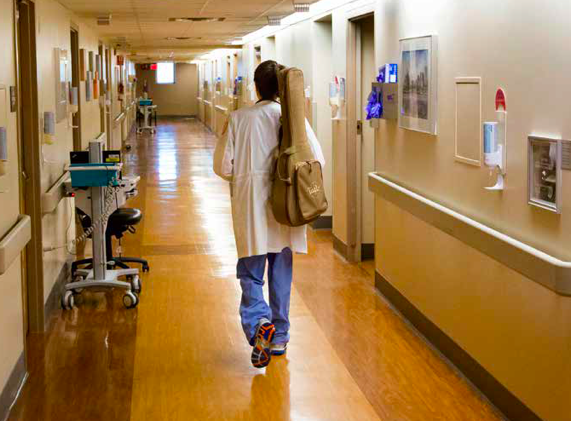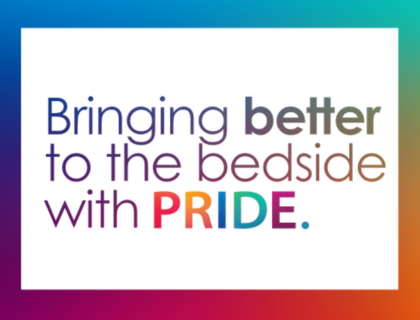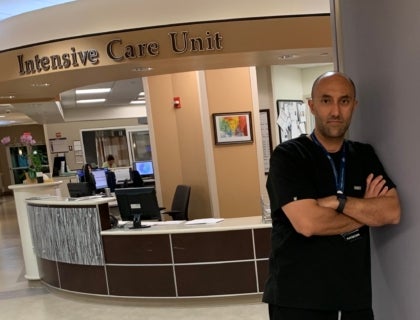December 27, 2017
Healing Self and Healing Others

It’s important for providers to take care of themselves so they can be present for others. We asked one of our Emergency Medicine physicians, Chris Peoples, MD, how he approaches self-care and stress management. He’s a member of Sound’s Resilience Catalysts – a group of providers who are focusing on how to make the workplace better for their colleagues. Building resilience has been shown to improve provider happiness, career satisfaction and clinical outcomes. Our providers are always looking for new approaches to promote resilience including improving workflow efficiency, enhancing social connections and valuing self-care. Dr. Peoples shares an innovative approach he used to deal with the stress of residency training and later as a practicing physician. As a musician, he knew music helped manage his own stress level and he wondered if that would translate to helping to reduce his patients’ anxiety and stress. In this blog post he shares the results of a small study he conducted on music and medicine. Read more about this creative approach on the road to resilience. As I turned on the car, my favorite worship song was playing. I was too tired to go anywhere so I just sat there for a moment. Numb from the stress of the day, I began to tune out and focus on the lyrics of the song playing. It was then that I realized this form of relaxation and meditation was a good way for me to recharge. In that moment, I started reflecting on my residency and how I handled the stress of training. I realized that I didn’t have a good strategy for dealing with stress. I connected the potential for burnout and the need to learn how to manage my stress before I could effectively heal others. I began setting aside time to decompress from the day, listen to music and write creatively. Although simple, these tasks gave me a fresh perspective and calm in the midst of the chaos I encountered daily. It all started out very personal and private, but I felt convicted to share my methodology with my colleagues. With hospital approval I organized a study titled, “Worship Rounds”. In this study I measured the effect of setting aside time to sing and reflect on residents’ well-being. Although my findings weren’t statistically significant, I did see positive results and that was enough for me.
- Stress scores improved by 10.6%
- Well-being scores improved by 7.3%
- 60% said it enhanced their residency experience
- Zero said it hindered their residency experience
Seeing a positive effect on my peers, I asked myself, “If this is helpful for physicians why don’t I offer this to my patients?” As physicians, it’s important to give our patients every possible option in their treatment course. Obviously, I’m not advocating prescribing music and journaling to treat patients exclusively, but if you can turn on a song and the atmosphere in the room changes and the patient begins to smile, why not use it? Music has no side effects, it’s free and you can’t overdose on it! With the idea of using music in healing and having hospital approval, I began to ask patients how they felt about singing together. The response was extremely positive and the results were even better. The effects it had on patients and their families was amazing, during a stressful time they were able to step back and enjoy a moment together that wasn’t completely focused on their sickness. As people, we can only give what we have deep within us. And, as physicians, if we are not well ourselves, this disposition will affect our ability to care for patients. While not all will find music as the way recharge or connect with patients, I encourage all of my colleagues to find ways to rest and recharge. Remember, if it helps you perhaps it can help your patients. Innovation isn’t exclusively tied to technology, and maybe it’s time to think outside the box. At the end of the day our goal is provide the best quality of care for our patients. How you get there is up to you.



